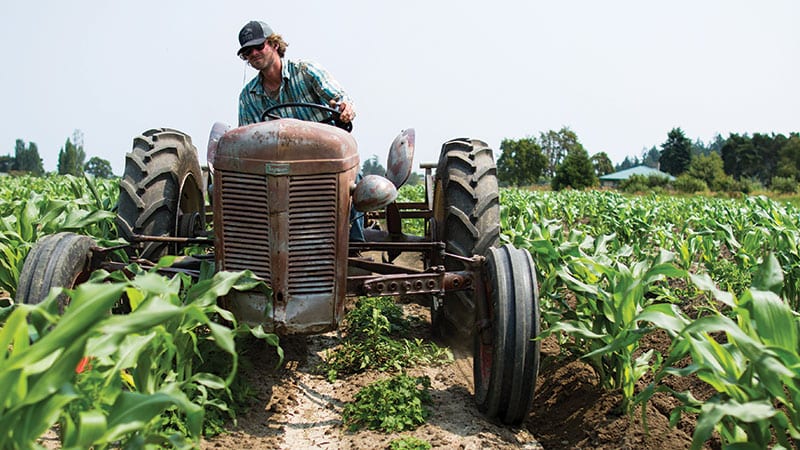At 20, Farmland Trust responds to a changing landscape
By Molly Goren, guest contributor
This article was originally published in May 2020

As we at the PCC Farmland Trust reflect on our 20-year history, we are struck by the growth and change we have seen over the last two decades—both within our organization and the landscape around us.
Just in the last year, the trust has hired a new executive director, scaled our work to help farmers secure land, and protected our 23rd forever farm. At the end of 2020, we’ll close out our $26 million comprehensive campaign and begin looking to our refreshed long-range plan to guide our conservation work over the next 30 years against a backdrop of climate change.
Across our state in recent years, fields flooded at record rates, smoke tainted our skies and residential development boomed, putting enormous pressure on our agricultural valleys. Western Washington alone lost 10% of its farmland between 2012 and 2017. Through our land-matching program Farm to Farmer, we learned that farmers across the state need more support than ever finding affordable land, from Jefferson to Chehalis to Spokane counties. And today, a growing pandemic threatens our local food supply.
A resilient future
As the need to create a more resilient future for farming in Washington grows, we, too, must grow with it. That’s why we spent much of last year gathering feedback from the people who care most about our work, to ensure our community’s thoughts and needs aligned with our organizational growth and vision for the future. Last winter, we heard from 650 donors, volunteers, farmers, partners and fans, with nearly 60% of participants identifying as PCC members or shoppers.
We learned that our community feels positively about PCC Farmland Trust and is clear about our mission to protect and steward threatened farmland in Washington. In addition, there was an overwhelming desire to learn more about our future vision and geographic footprint. We learned that our community sees farmland protection at the nexus of many other important issues—from rural economic development to healthy food and climate change. We also learned that not everyone realizes that we are our own nonprofit, separate from PCC (in 2005, we became an independent 501(c)(3) nonprofit organization with a separate staff, board and mission) and that sharing a name causes confusion about our relationship to our founder and distinctions between our day-to-day work.
Developing a plan
Bolstered by this data, guided by our organizational expansion, and emboldened by our rapidly changing landscape, we are developing changes to our brand and messaging to better align with where our work—and our landscape—is heading. We are excited about what lies ahead and expect to share any conclusions and future plans with you in the fall, right here in the Sound Consumer. Until then, join us in celebrating our history at pccfarmlandtrust.org/20years, and learn what actions you can take to help sustain a future for farming for the next 20 years and beyond.
Molly Goren is senior communications manager at PCC Farmland Trust.
